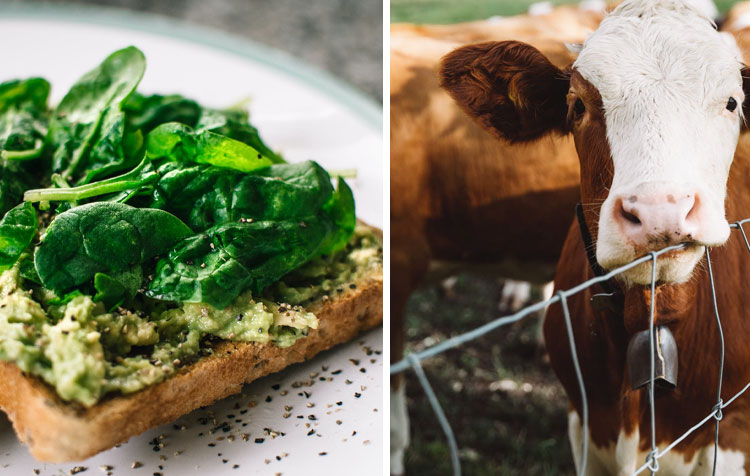Are you looking for a clear vegan definition and want to know the basics about veganism? Then you've come to the right place! "What is vegan?" - this question often comes up, especially when eating with the family, at birthday parties or in conversations with friends. Is it a type of diet, a trend, a movement or a way of life? Very few of us have a clear and unambiguous definition. However, most of us know that veganism is about animal welfare and that plant-based foods play a special role in the lives of vegans.
In this article, I would like to explain briefly and concisely how and why people go vegan and how veganism is defined. Let's go!
A brief overview for you in advance:
Simply explained: What is veganism?
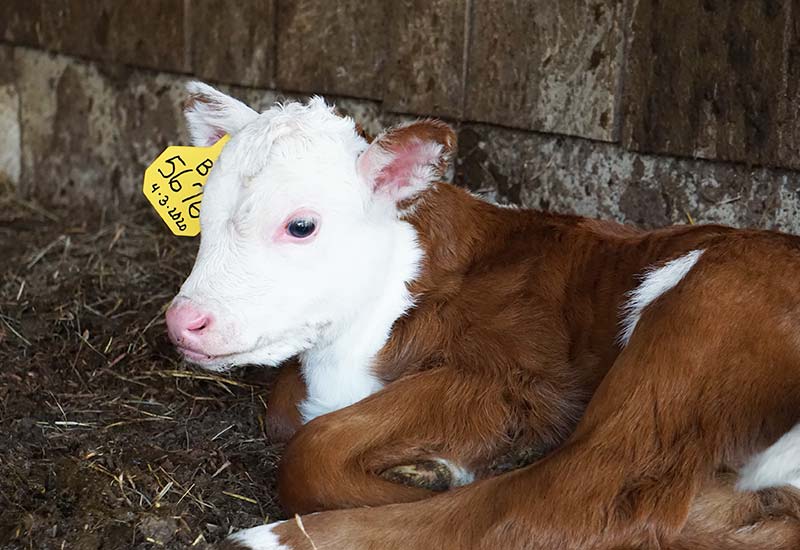
"So what is this VEGAN thing anyway?" - I hear my grandma ask with some irritation during our last visit home. The history of veganism actually began in her youth, even though the movement was still very small at the time and probably nobody in our village knew about it. Back in 1944, the British man Donald Watson founded the Vegan Society. A non-profit organization that significantly coined the term vegan and campaigned against animal suffering in the world.
I personally gave my grandma the short and sweet answer that veganism is a Life attitude against Cruelty to animals and any animal exploitation is about. When I received an interested question, I briefly mentioned that this was mainly for food, clothing, entertainment and scientific experiments.
However, there is also an official vegan definition that has been slightly modified over time. It comes from the aforementioned Vegan Society and can be translated as follows:
"Veganism is a way of life that seeks - as far as practicable - to avoid all forms of exploitation and cruelty to animals capable of suffering for food, clothing and other purposes; and subsequently promotes the development and use of animal-free alternatives for the benefit of people, animals and the environment. With regard to food, this means the renunciation of all products that are wholly or partially derived from animals."
Vegan definition of the Vegan Society (1979)
The vegan basic idea pursues above all the pragmatic approach, Minimize suffering. With this definition, you now have a detailed but clear answer for all situations. Simply shorten it to the essentials if it seems a little too long for everyday conversations 😉.
Important: Even though vegans eat a purely plant-based diet, veganism is not a diet, but a way of life and a global movement for animal rights. Plant-based meals, just like not going to the zoo or buying leather shoes, are just one of many ways to combat the exploitation of animals. The Difference between a plant-based diet and veganism but I will also explain them again in a separate article.
Why do people live vegan?
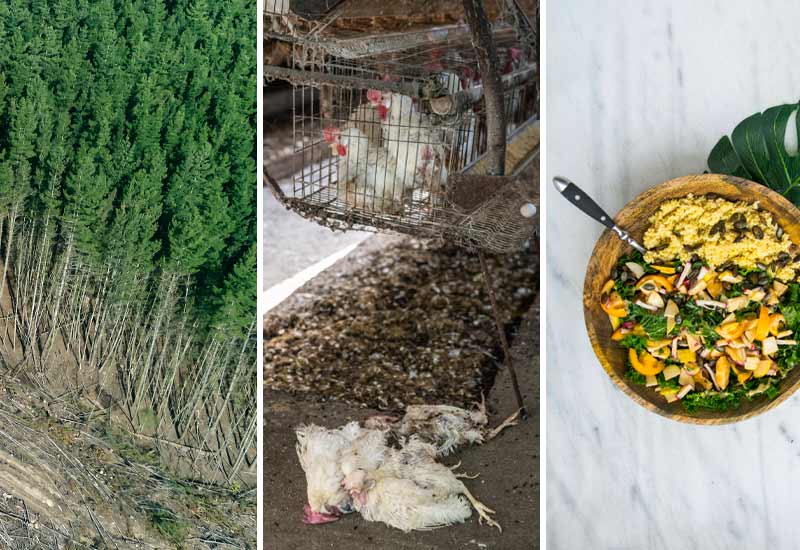
It's not about perfection and becoming Live 100 percent vegan or to prevent 100 percent animal suffering. This is almost impossible, as anyone could accidentally step on an ant. Rather, the vegan definition makes it clear that the systematic exploitation and the suffering caused by it as good as practically possible should be prevented. Most vegans are driven by ethical motives. However, many people also (additionally or) opt for a vegan lifestyle because they want to protect the planet and its natural resourcesand protect their own health.
Ethical vegans
Those who live vegan for ethical reasons primarily want to Prevent violence and no longer be responsible for the systematic exploitation and suffering of animals.
Also the Respect for other people/future generations must be mentioned when it comes to moral motives. For example, the vegan lifestyle contributes significantly to the more effective use of available and agriculturally produced resources and food, so that the World hunger stopped can be.
Tip: Why you can also vegan for people and not just vegan for animals is explained in more detail in the linked article.
Ecological vegans
The production of animal-based foods such as meat, milk, eggs, butter and cheese are Extremely resource intensive and therefore have a noticeably negative impact on your own, ecological footprint down. Why? For example, because the animals have to be fed for years. Large areas of land are needed to keep the animals (pastures) and to produce the animal feed (mainly soy granules) - a fact that is essential for the Deforestation of the rainforests is responsible. In addition, however, animal husbandry for food production (including animal feed cultivation and transportation, methane emissions from ruminants) also contributes significantly to climate change contributes.
Ecologically motivated vegans therefore consider it more sensible to avoid the environmentally destructive detour of consuming animals bred solely for our consumption and to use the animals grown for our own consumption. Plants easy to eat directly.
Health vegan*s
By definition, veganism is not an end in itself, but a means to help other living beings. However, many vegans are (additionally) motivated by their own health aspects to go vegan. plant-based diet. Sich eating a balanced vegan diet is very healthy. The purely plant-based diet counteracts the development of common diseases such as high blood pressure, obesity or type 2 diabetes, for example, as well as the risk of heart attacks.
Notice: One is truly solidly vegan when ethical motives against the injustice of animal exploitation are the driving force, as this is, simply put, the definition of veganism. Who stops being veganwas never actually vegan, but rather a purely plant-based diet for health or ecological reasons.
What do vegans (not) consume?
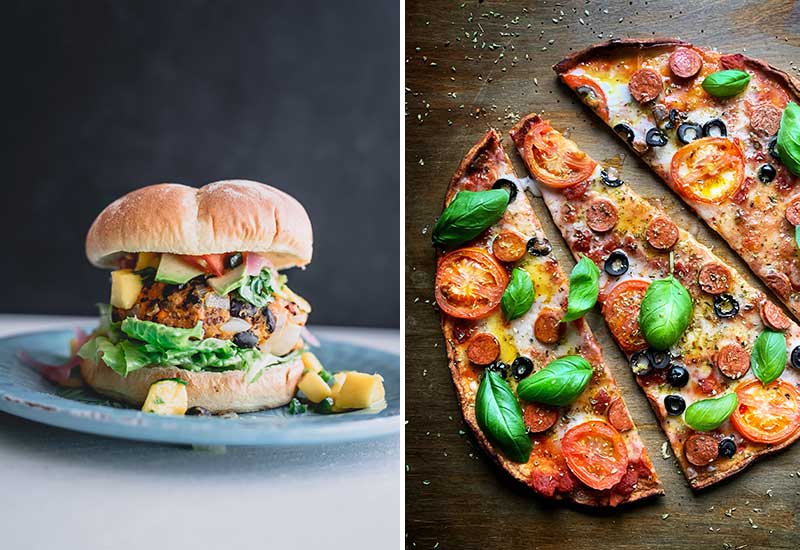
Now you know the motives, but what does it look like in practice? What do vegans eat and buy and what things do they do without? In principle, all non-animal consumer goods may be eaten or consumed.
In general, all things that are of animal origin or contain animal ingredients are avoided. It is therefore easier to simply list the products that are not compatible with the vegan lifestyle, aside from the vegan definition.
To be dispensed with or replaced:
- Meat (also from fish and other seafood)
- Eggs
- Milk and dairy products (e.g. yogurt and butter based on cow's milk)
- Honey
- All food and consumer products with animal ingredients and additives
- Clothing with genuine leather, fur or other material of animal origin
- Consumer goods for which Animal testing have been made (e.g. some cosmetics)
- Circus visits with animals (Recommendation: Is a circus with animals in keeping with the times?)
- Zoo visits (Recommendation: Are zoos still up to date?)
- Riding horses...
- …
As already mentioned, vegans generally refrain from all things of animal origin or otherwise involved in the exploitation of animals by humans. Personally, however, I wouldn't call it going without, as you simply replace the items on the list with animal-free alternatives. For example, vegan leather made from cacti, oat milk, vegan honey made from dandelions or plant-based meat made from peas.
What is veganism? The movement against the exploitation of all animals
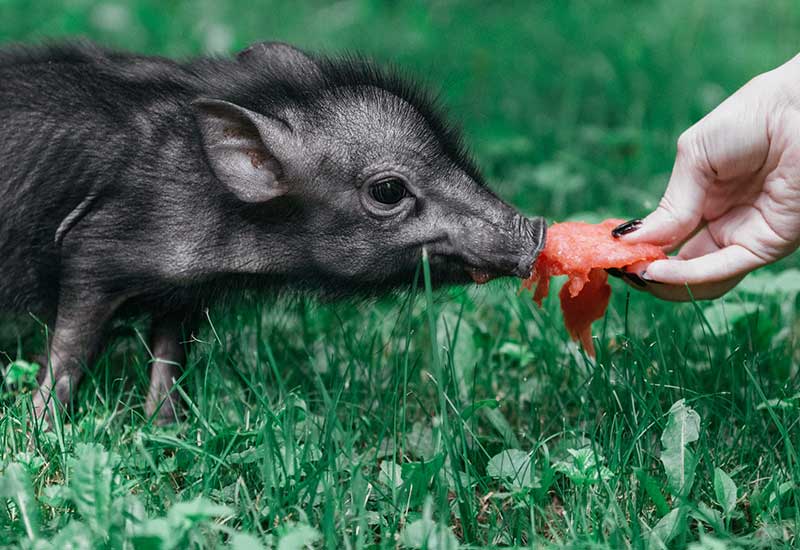
In simple terms, being vegan therefore means Avoid the use of animals or animal products in all aspects of life. The bottom line is that as a vegan, you simply stop taking things that actually belong to other living beings.
It is not a short-lived trend or one of dozens of different diets. Veganism is a Global movement for the rights and protection of animals. Fortunately, the implementation is (now) extremely uncomplicated and has very little to do with doing without, but rather with changing one's own habits and behaviors that cause animal suffering.
What will you answer the next time someone asks you what veganism is? I very much hope that this article and the vegan definition will help you with your answer. And if you can't think of anything off the top of your head, just send the other person this article 😉.
Do you have any questions, tips or suggestions about the definition of the vegan lifestyle? Then I look forward to your comment.
Stay animal-friendly,

PS.: There are really incredibly many Prejudices against vegans. Make sure you look at how they are invalidated. Ultimately, a clear vegan definition helps you to put them aside and find your own approach to the movement's motives. After all, most of us would probably say that animals, the environment and our own health are important to us.

